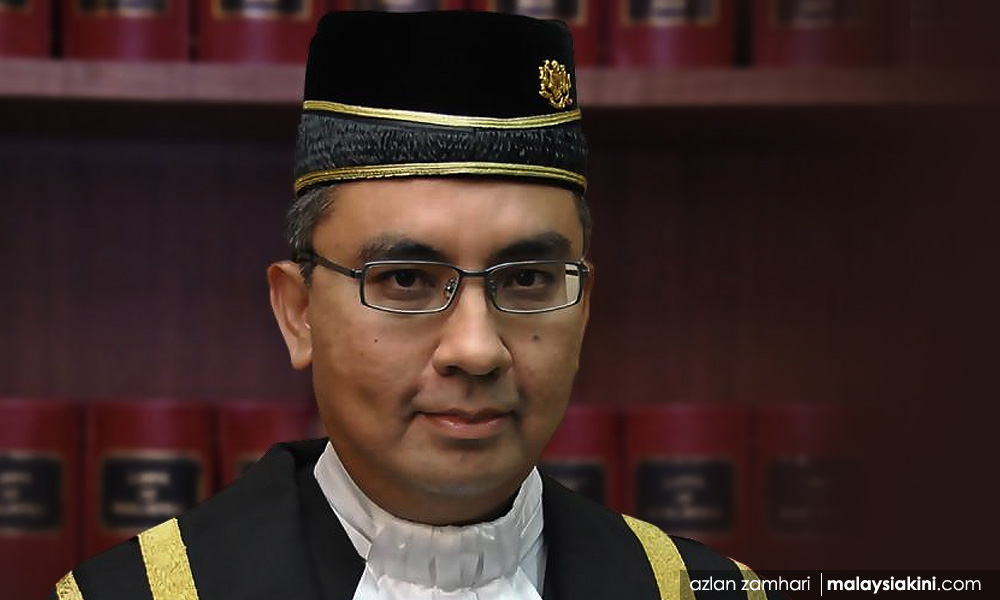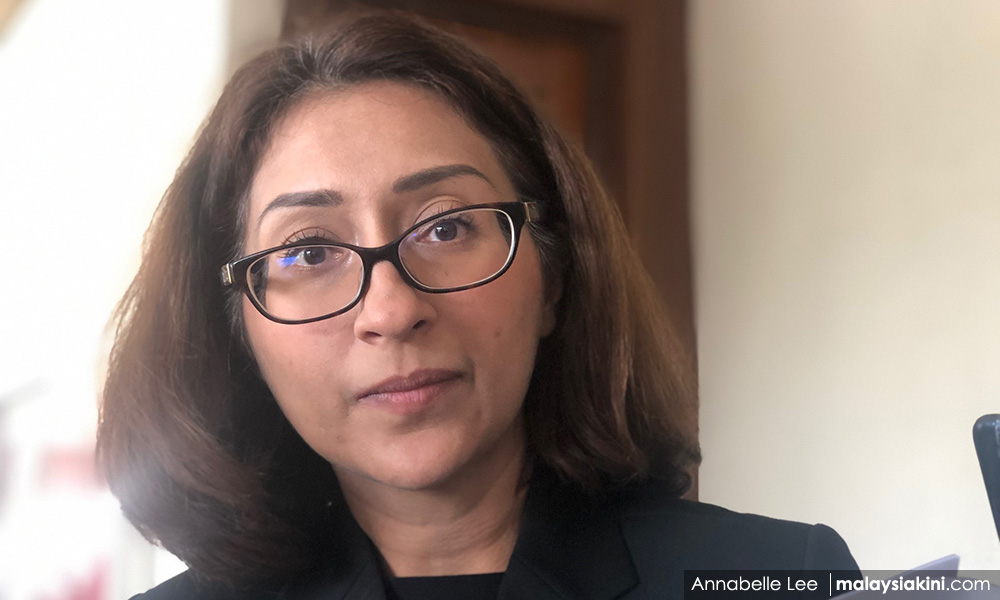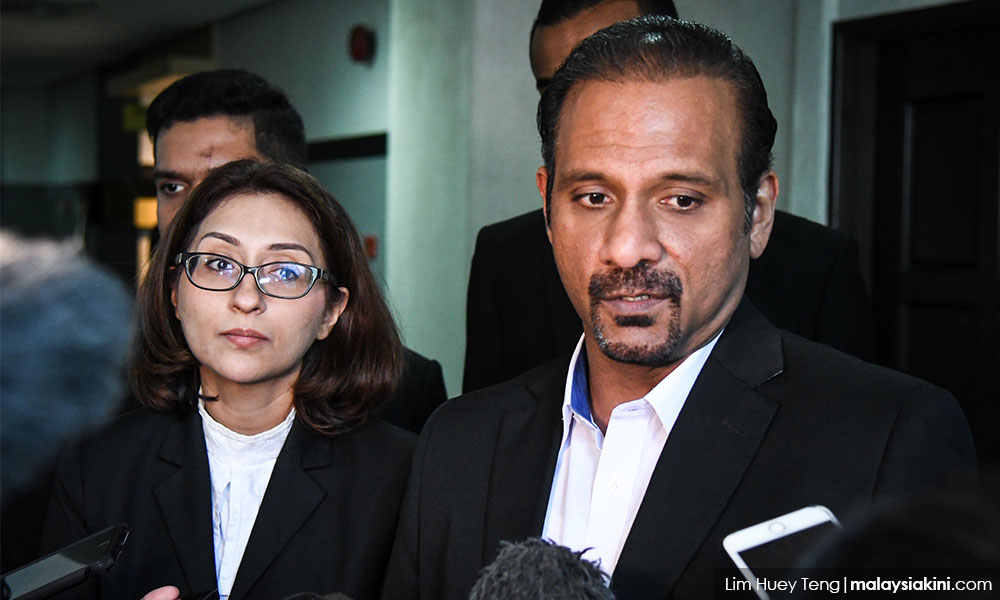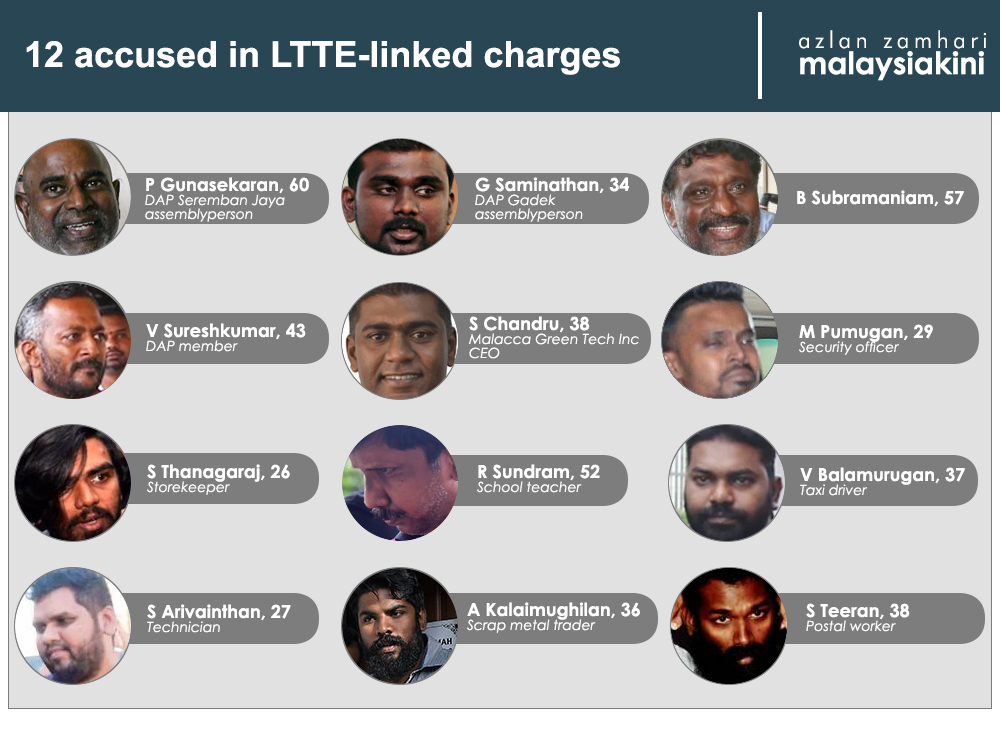
Gadek assemblyperson G Saminathan succeeded in securing the High Court’s green light to hear his bid for bail in relation to his detention under a security law over the probe into militant group Liberation Tigers of Tamil Eelam (LTTE).
This followed the court in Kuala Lumpur late this morning allowing his application for an order to compel the Sessions Court to hear his application for bail despite being detained under the Security Offences (Special Measures Act) 2012 (Sosma).
Judge Mohd Nazlan Ghazali ruled that Section 13 of Sosma, which prohibited courts from granting bail in security offences cases, violates the doctrine of separation of powers between the judiciary, the legislature and the executive.
The judge ruled that the provision is unconstitutional as it usurps the court’s power to grant or deny bail.
Justice Nazlan said that in a Federal Court appeal involving Semenyih Jaya, the apex court ruled that the judicial power of the court resides exclusively only in the court and no other, as per Article 121 (1) of the Federal Constitution.
“Judicial power is central to the doctrine of the separation of powers between the executive, the legislature and the judiciary, which is a fundamental feature in the basic structure of the Constitution,” he said, adding that such separation of powers among the three branches of government is a hallmark of a modern democratic state.

Justice Nazlan (photo) ruled: “Any usurpation of the judicial power by any other arm of the government infringes the sanctity of the doctrine of the separation of powers, violates the basic structure of the (Federal) Constitution, and is therefore unconstitutional.
“Judicial power includes the power to grant or refuse bail to an accused person. It is fairly well established that the power to grant or deny bail is in a nature of a power inherently vested in the courts.
“This is also well in accord with the presumption of innocence and the objective of bail, which is to ensure the attendance of an accused at trial.
“The judicial power on bail cannot, therefore, be restricted, what more absolutely prohibited by any statutory provision such as in respect of Section 13 of Sosma vis-à-vis the offences under Chapter VI-A of the Penal Code, because this usurpation or removal of the power of the Courts to consider bail is contrary to the doctrine of the separation of powers.
“Accordingly, my answer to the first question – whether Section 13 of Sosma is ultra vires Article 121(1) of the Constitution is in the affirmative. Section 13 is unconstitutional because it divests from the courts the judicial discretionary power to evaluate whether or not to grant or refuse bail applications.”
The ruling does not mean bail must be granted
As Saminathan was seen smiling from the dock, the judge cautioned that today’s ruling does not mean that the accused must be granted bail, only that it reaffirms that the judicial power to grant bail cannot be restricted or prohibited, which would contravene Article 121(1) of the Federal Constitution
Justice Nazlan said that in assessing whether to grant bail in security offence cases, the court needed to exercise judicial discretion by taking into account relevant considerations such as the nature and gravity of the offence, severity of punishment under the law upon conviction, the risk of the accused absconding, danger of the offence being continued or repeated, the danger of witness tampering, as well as the accused’s character, means and standing.
“It may probably be true, as suggested by learned counsel (Ramkarpal Singh) for the applicant (Saminathan) during submissions that it may not be easy for the courts to grant bail in security and terrorism-related offences.
“But it is entirely for the court hearing an application for bail to make that determination, having regard to the facts and circumstances of the case, in the exercise of the court’s discretionary power,” Nazlan said as muted murmurs of approval were heard among supporters in the packed courtroom today.
The court fixed today for a decision on Saminathan’s application, following submissions by both the defence and prosecution hat were being wrapped up on Tuesday.
Section 13(1) of Sosma states that bail shall not be granted to a person who has been charged with a security offence.

After today’s proceedings, Saminathan was seen conferring with his counsel Sangeet Kaur Deo (above) and other members of his legal team. He was then escorted out of the High Court by two police officers.
DPP Aslinda Ahad is among the members of the prosecution in today’s matter.
Among those present in the packed courtroom today were DAP advisor Lim Kit Siang, Klang MP Charles Santiago, Kota Melaka MP Khoo Poay Tiong and Malacca State Assembly Deputy Speaker Dr Wong Fort Pin.
Met after proceedings, Aslinda said that the prosecution would discuss whether to appeal today’s verdict in the Court of Appeal.
Outside the High Court, Sangeet said that they will, as soon as possible, file an application for the Kuala Lumpur Sessions Court to grant bail to Saminathan.
She said that they would file the application way before the next mention of Saminathan’s case in the Sessions Court on Dec 23, as waiting until that date of mention to file the said application would be too long, in light of today’s High Court verdict.
Today's ruling will have an impact not just on Saminathan but also on the other 11 accused who have been charged in the Kuala Lumpur Sessions Court with offences allegedly linked to LTTE and were denied bail by the lower court.
On Nov 1, the Sessions Court allowed applications by Saminathan and 11 others to refer bail-linked constitutional issues to the High Court.
On Nov 6, Saminathan's application came up before Justice Nazlan, where DPP Muhammad Iskandar Ahmad argued that only the Federal Court has jurisdiction to determine the constitutional issues in the bail bid.

On that date, Ramkarpal (above, right) countered that the High Court has jurisdiction to hear the application.
He said the Sessions Court judge had on Nov 1 decided there was merit in the defence application under Section 13(2) of Sosma to refer constitutional issues on bail to the High Court.
The other 11 individuals charged for LTTE-linked offences are Seremban Jaya assemblyperson P Gunasekaran, 60; taxi driver V Balamurugan, 37; dispatch rider S Teeran, 38; scrap metal dealer A Kalaimughilan, 28; the chief executive of a corporation S Chandru, 38; technician S Arivainthan, 56; storekeeper S Thanagaraj, 26; security guard M Pumugan, 29; secondary school teacher Sundram Renggan @ Rengasamy, 52; DAP member V Suresh Kumar, 43; and businessperson B Subramaniam, 57.
On Oct 29 and 31, they were hauled before separate Sessions Courts in Kuala Lumpur and several states to face charges in relation to their alleged involvement with LTTE.
Previously, Saminathan and four others have submitted habeas corpus applications to be released from detention.
However, on Nov 5, the High Court judge in Kuala Lumpur, Justice Ahmad Shahrir Mohd Salleh, dismissed the habeas corpus applications, ruling that they have become academic and irrelevant because the applicants have been charged in court.
Aside from Saminathan, the habeas corpus applications were filed by Gunasekaran, Chandru, Suresh Kumar and Arivainathan. - Mkini

No comments:
Post a Comment
Note: Only a member of this blog may post a comment.